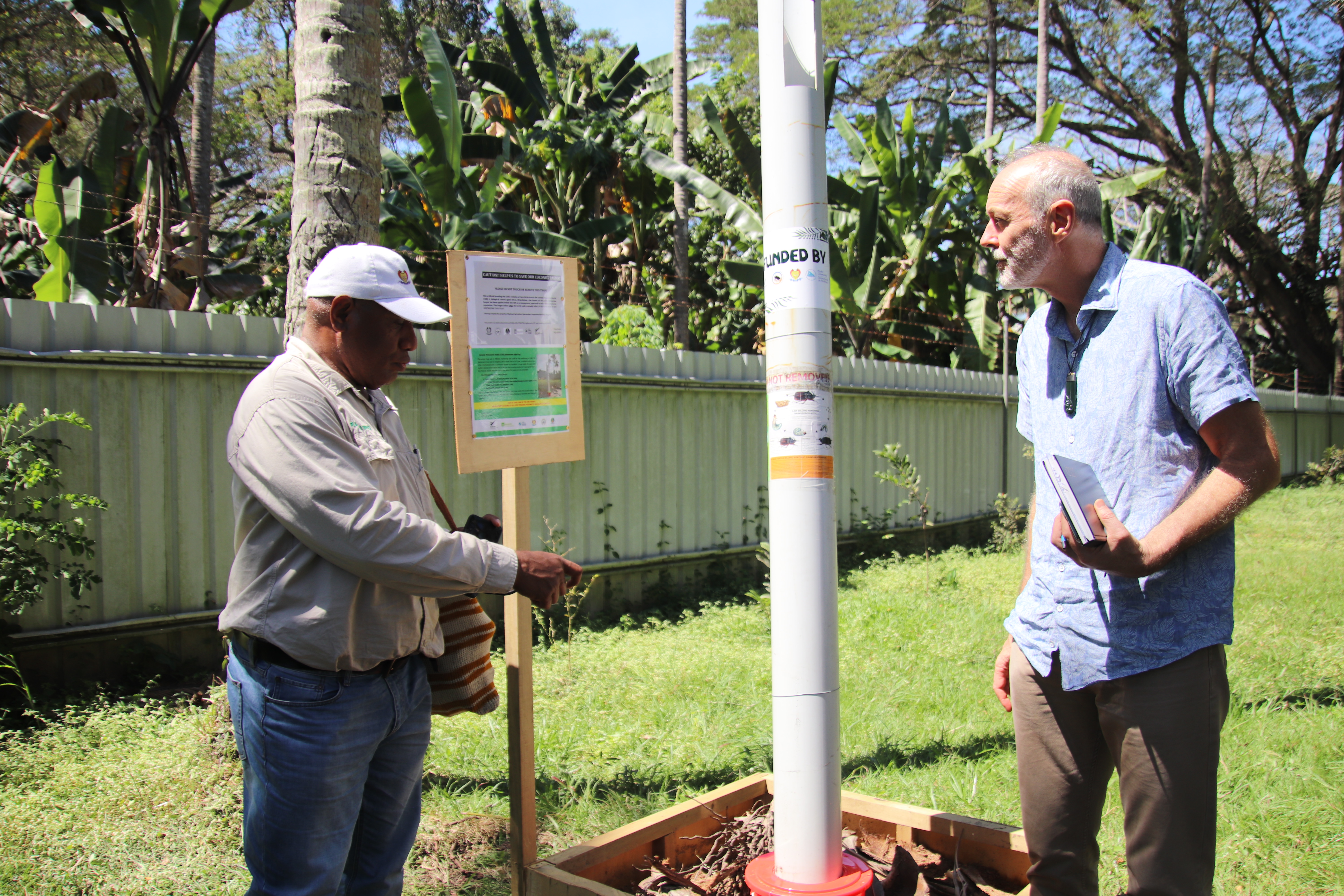
The Papua New Guinea Coconut Rhinoceros Beetle (CRB) taskforce team have agreed to set up pilot coconut palm demonstration sites to test out best control measures against the invasive Coconut Rhinoceros Beetles which have been aggressively attacking coconut trees in parts of Papua New Guinea.
Principal scientist and CRB expert Dr Trevor Jackson says the goal of the CRB taskforce is to coordinate efforts to understand the distribution of the different biotypes of CRB and improve management response to limit damage from the pest in Papua New Guinea (PNG).
“We’re going to monitor the initial pilot sites intensively to see which ideas work for those communities and which don’t work so well so we can make solid recommendations.”
The initiative is part of the Pacific Awareness and Response to Coconut Rhinoceros Beetle project funded by the New Zealand Ministry of Foreign Affairs and Trade (MFAT) and implemented by the Pacific Community (SPC) in partnership with Ag Research NZ and PNG partners National Agriculture & Quarantine Inspection Authority (NAQIA), Kokonas Indastri Koporesen (KIK) and PNG Oil Palm Research Association (PNGOPRA) which make up the CRB taskforce team.
The team have been meeting every year in PNG since 2020 to share their experiences and findings, which included advances made in establishing the current distribution status of the CRB; pest damage surveys, particularly along the Central-Gulf coastlines, to determine the extent of the CRB infestation in PNG; trials investigating potential biocontrol agents that could control and contain the coconut pest.
PARC project manager Dr Mark Ero says Port Moresby has suffered a massive loss in coconut palms over the years, with coconuts now becoming expensive and being sourced outside the city.
“Our message for the people of PNG is that this is a new strain of the pest, and it’s quite invasive from what we’ve seen. It is very hard in a country like PNG to regulate the transport of plant materials and other goods, which is one of the reasons why it has spread very quickly, so we need to work out a response that needs to be implemented country-wide. We do not want this situation to spread to other parts of PNG".
“It’s important to notify local authorities like NAQIA or KIK if there’s a problem, to engage in recommendations for cleaning up the breeding sites and work together to get this under control.”
The pilot sites are expected to start quickly, with the first mapping of the sites and the first activity already set up by NAQIA.
The Taskforce team will hold their 5th CRB meeting at Madang Province this week.

